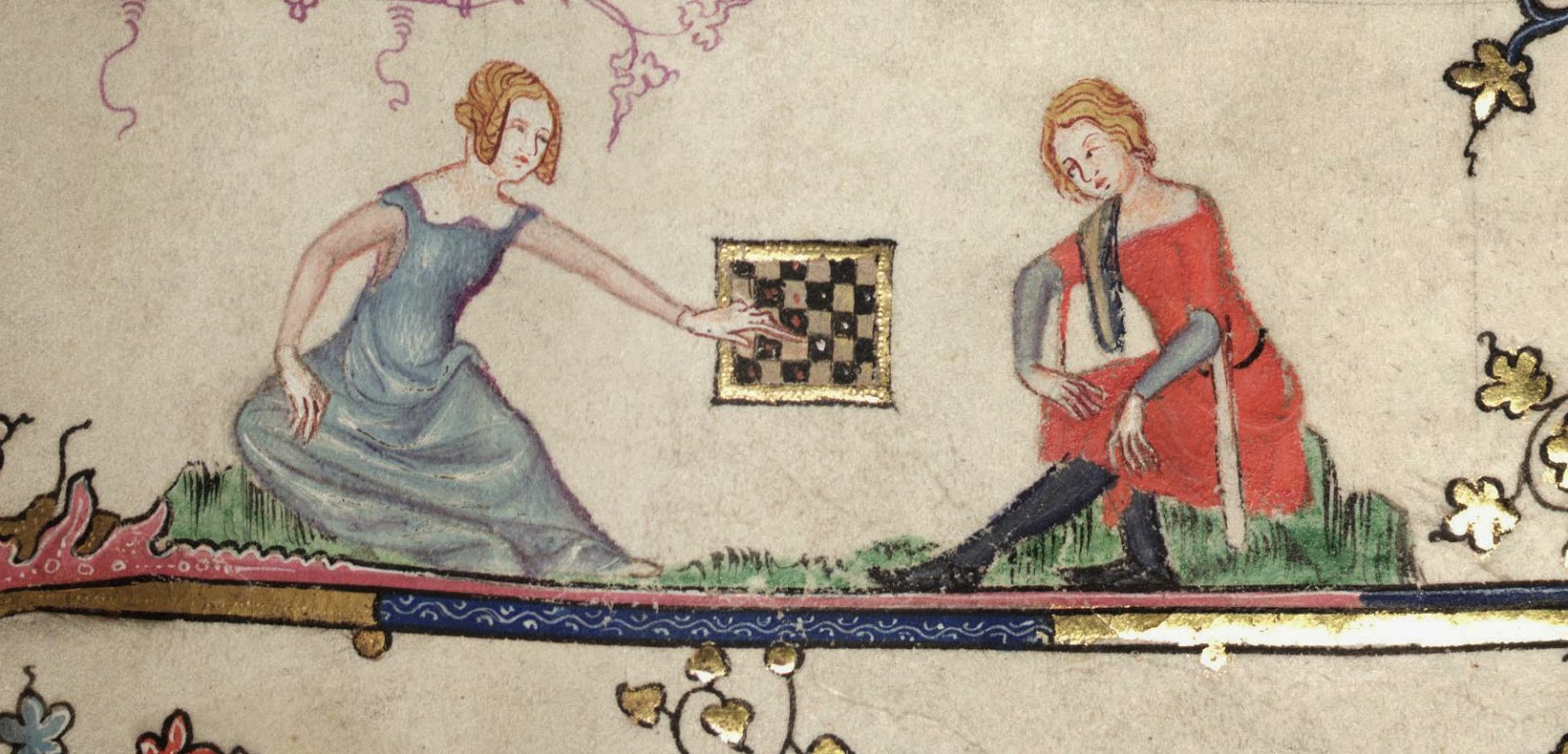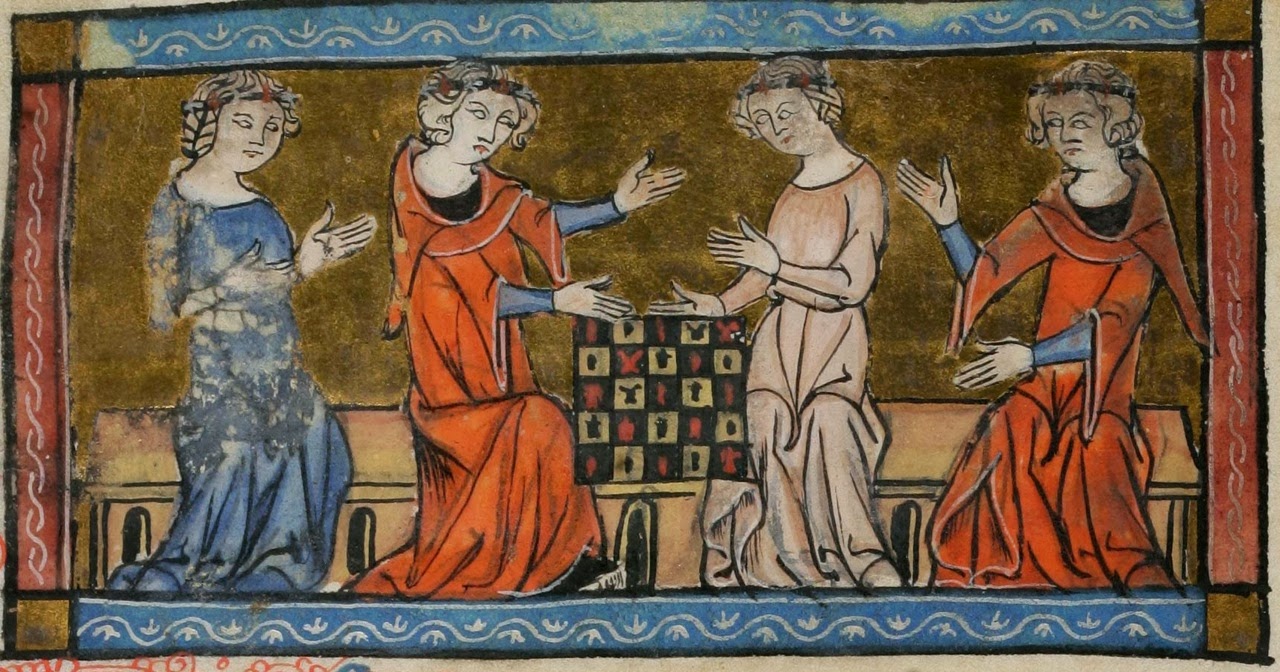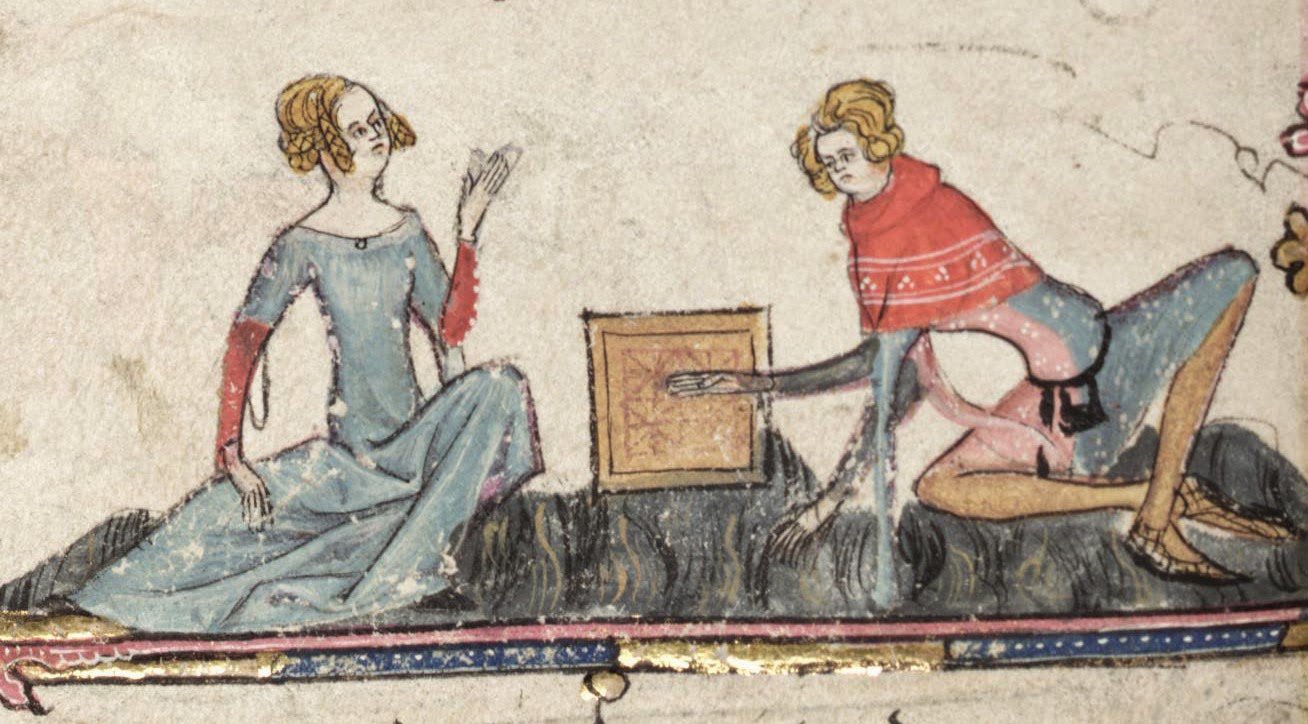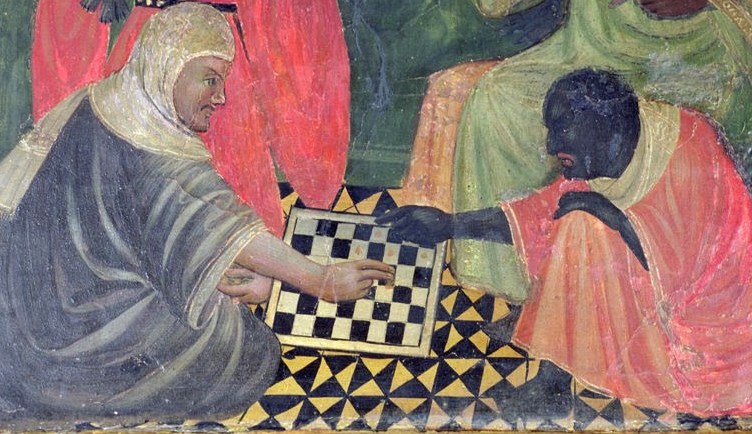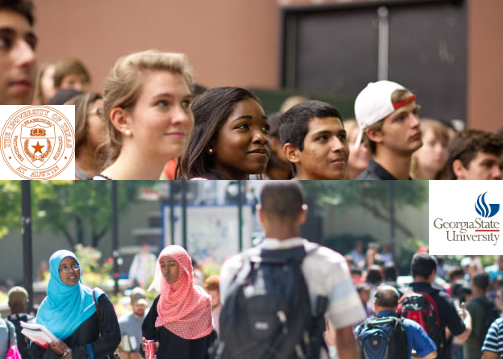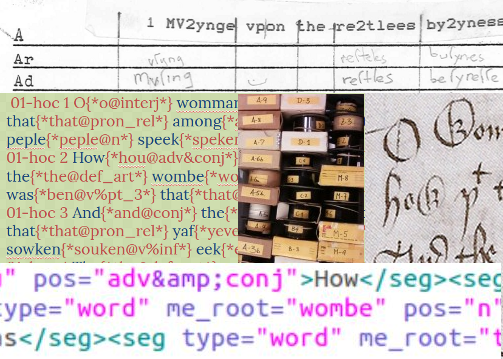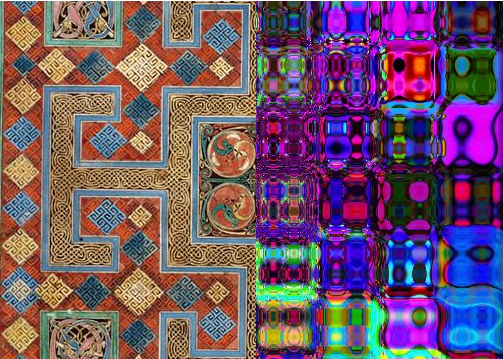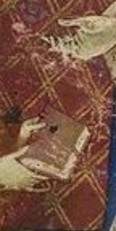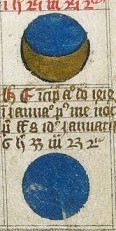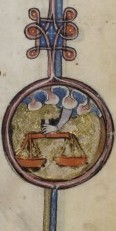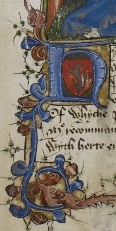Current Projects
The core of the archive consists of the physical and digital residues of the most recent attempt to produce a complete critical edition of the Regiment of Princes. Digitization and accession of this material into the University of Texas Digital Repository is ongoing. From this archival core, we are developing new digital texts and research tools to make Hoccleve’s work more accessible to scholars, teachers, and amateurs.
The Holograph Manuscripts
Using text files created by previous editors, Student Innovation Fellows at Georgia State University developed a working prototype of a complete digital edition of the poetry surviving in Hoccleve’s own hand in Huntington HM 744, Huntington HM 111, and Durham MS Cosin V.iii.9.
Collation Tables
Included in the archive’s physical holdings are approximately 6,000 photocopies or mimeographs of handwritten collation tables. Each table contains handwritten transcriptions of a line of the Regiment of Princes (or a gloss) as it appears in all extant manuscripts. These tables are now available as digital images from the University of Texas Digital Repository.
Concordance of Time Referents
Building on work by Karen Smyth (University of East Anglia), the concordance is a searchable database of the numerous markings of time–“alternations of day and night, of the seasons, of birth to death, of wakefulness and sleep, of the lunar and solar phases”–in the Regiment of Princes. It is the result of a collaboration between Elon Lang and Mark Watts, who graduated from UT Austin in 2014 with a BS in computer science.
The Formulary
Hoccleve’s Formulary contains the author’s personal compilation of more than 1,000 examples of legal documents for his use as a clerk of the Privy Seal. Helen Hickey (University of Melbourne) has transcribed more than 80% of the formulary. Hickey’s transcription is currently available as a downloadable Excel document, and we are in the process of converting it into an SQL database.
Hoccleve's Lexicon
The HOCCLEX files are digital transcriptions of poetry from the holograph manuscripts, and they include information about the part of speech and Middle English root form for every word, in every line, of every poem. The HOCCLEX files are available for download as plain text files in their original markup format and in TEI-compliant XML. Student Innovation Fellows at Georgia State are working to integrate the lexicon with our digital edition of the holograph poetry.
“The archive has always been a pledge, and like every pledge, a token of the future.” ~ Jacques Derrida
A select bibliography of conference papers and publications discussing our work on the Hoccleve Archive is available here, on the “Papers and Publications” page.
“The true method of making things present is to represent them in our space (not to represent ourselves in their space).” ~ Walter Benjamin
Editors and Contributors
Elon Lang, PhD
General Editor | Curator
Lang is a lecturer in the College of Liberal Arts Humanities Programs and a former project archivist at the Harry Ransom Center at the University of Texas at Austin. He holds a Ph.D. in English from Washington University in St. Louis (2010) specializing in Thomas Hoccleve and late-medieval English literature. He is currently serving as the director of the International Hoccleve Society.
Robin Wharton, PhD
Editor | Technical Development Lead
Wharton is a lecturer in English at Georgia State University, specializing in rhetoric, composition, and digital pedagogy. She holds a law degree (1999) and a PhD in English with an emphasis in late-medieval English law and literature (2009) from the University of Georgia. Her publications have appeared in Shakespeare Bulletin, Digital Humanities Quarterly, and Hybrid Pedagogy.
Contributors
Helen Hickey (Univ. of Melbourne), Karen Smyth (Univ. of East Anglia), Mark Watts (UT Austin), and the Student Innovation Fellows at Georgia State University: Rushita Mettu, Siva Kondeti, Dylan Ruediger, Ramsundar Sundarkumar, Sruthi Vuppala, Zane Blalock, Madison Hansberry, Jennifer Ly, Priyanka Tayi.
“Finally, I have to thank my immediate family, who have suffered the indignity of living with a reluctant editor of whose work they are not likely ever to reap the benefit.” ~ Charles Blyth
